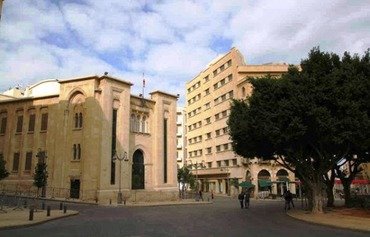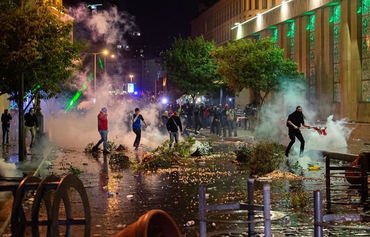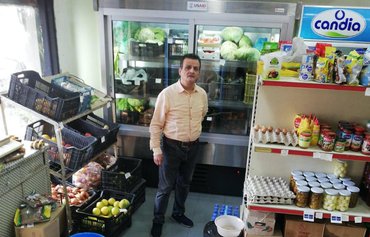The recent removal of concrete barriers leading to Beirut's commerical centre will go a long way towards revitalizing the downtown area and reviving the city's economy, experts and business owners told Al-Mashareq.
The Lebanese army on January 3rd removed the concrete barriers and iron gates that had blocked access to the commercial centre for four years.
The barriers were removed at the direction of House Speaker Nabih Berri, who, pointing to a decline in security threats, ordered the "opening of all entrances [leading] to the Parliament".
The downtown area was barricaded and almost totally sealed off in 2014 following security threats by extremist groups.
![Pedestrians walk near the clock tower in downtown Beirut's Nejmeh square. Full access to the downtown area was restored earlier this month with the removal of concrete barriers. [Photo courtesy of the National News Agency]](/cnmi_am/images/2018/01/24/11111-Lebanon-Beirut-downtown-600_384.jpg)
Pedestrians walk near the clock tower in downtown Beirut's Nejmeh square. Full access to the downtown area was restored earlier this month with the removal of concrete barriers. [Photo courtesy of the National News Agency]
This led to heavy losses for investors, as business activity declined to 3% as a result of the drop in the number of tourists -- the main source of income for downtown businesses, said Karamna restaurant manager Ali Abdul Wahed.
"Our restaurant is one of four restaurants, out of 170 restaurants, that remained open during the shutdown period," he told Al-Mashareq.
The reopening of Nejmeh square and its surrounding area will "revive economic activity and encourage investors to invest in the downtown [district] once again, provided there is confidence in the political and security situation", he said.
Solidere, the company in charge of planning and redeveloping Beirut's central district after the civil war, "commissioned a consulting firm to launch a campaign to promote investment in the downtown", Abdul Wahed noted.
The decision to reopen this area must be accompanied by political support for incentives that support the downtown area's revival, he said, adding that the municipality should review leases and tax charges as an incentive to investment.
Downtown economic revival
"The re-opening of the downtown district is crucial for the revival of downtown Beirut's economy," said Tony Ramy, president of the Syndicate of Owners of Restaurants, Cafes, Nightclubs and Pastries in Lebanon.
But for this to succeed, the necessary incentives and conditions must be in place, he told Al-Mashareq, noting that key investors must return and Lebanon’s Central Bank must extend subsidised loans and review leases.
In all capitals of the world, the downtown area is the "country’s beating economic heart, because it is the hub of business, trade and services", economist Jassim Ajaka told Al-Mashareq.
Prosperity in the capital's city centre is a leading indicator of overall economic prosperity, he told Al-Mashareq.
The decision to remove the barriers from around the Parliament is "a blessed step", he said, but remains insufficient from an economic perspective.
Boosting investor confidence
Investor outlook cannot be changed instantly, Ajaka said, as garnering investor, consumer and tourist confidence "requires long-term measures".
He expressed hope that the decision to open Nejmeh square and parts of downtown Beirut marks the end of security threats and "ushers in the phase of building security and stability and stimulating economic growth".
"The holding of music and cultural festivals throughout the year in downtown Beirut will revive the district, which is a leading indicator of Lebanon's economic prosperity," Ajaka said.
Beirut's economy went through a decade of stagnation due to the security constraints that saw the departure of the flagship stores of many global brands that were a popular draw for tourists, said Violette Ghazal al-Balaa, editor-in-chief of Arab Economic News.
But the recent removal of the concrete barriers indicates an improved security situation, she told Al-Mashareq.
However, economic prosperity in downtown Beirut "also requires a conducive political climate represented by actual and real consensus among those in power to restore confidence in Lebanon’s future", she said.
This would motivate investors to invest in new projects or expand existing projects, which directly affects the labour market, al-Balaa said.
"When the state contributes to the creation of new jobs, it also contributes to raising citizens’ purchasing power," she said.
This would raise the rate of internal consumption that Lebanon relies on to create a normal economic cycle amid a decline in external demand, she said.

![Lebanese soldiers remove concrete barriers in downtown Beirut to allow traffic into the area after nearly four years of closure. [Photo courtesy of the National News Agency]](/cnmi_am/images/2018/01/24/11110-Lebanon-Beirut-downtown-600_384.jpg)






